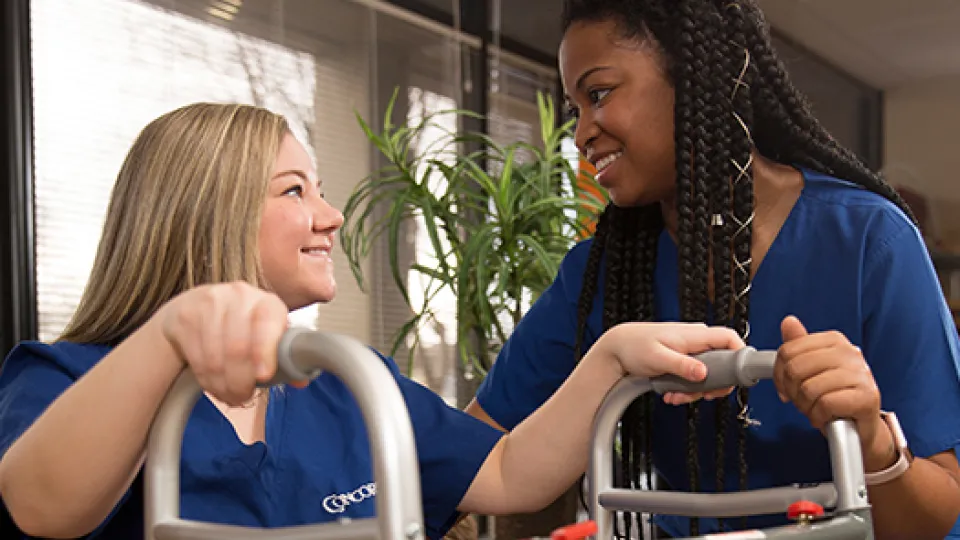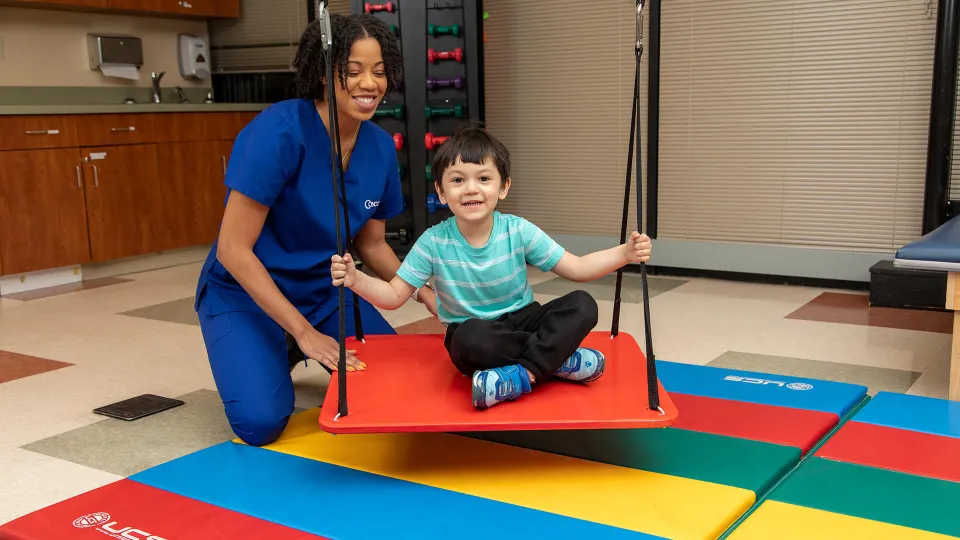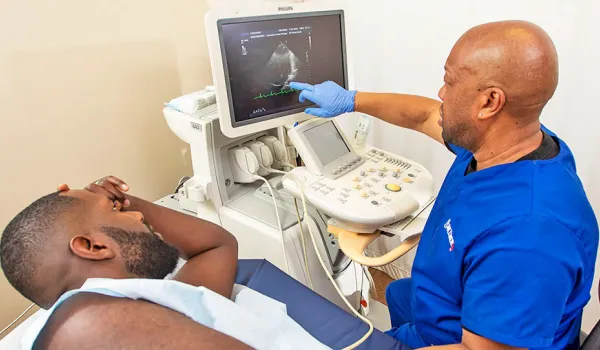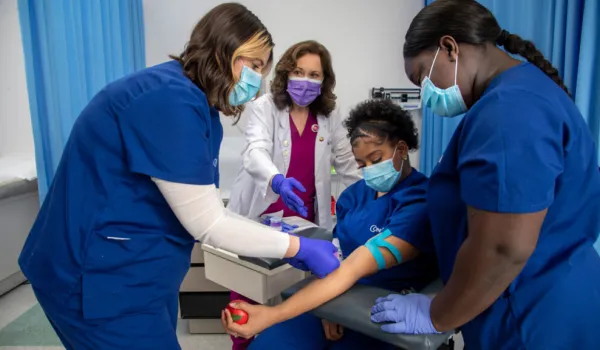
Students in Concorde's Occupational Therapy Assistant programs learn from the start the tenets of occupational therapy (OT). Simply put, OT is a regime of physiological and psychological activities and exercises designed to enable patients with disabilities to lead productive lives. It targets improving a patient's abilities to conduct basic activities of daily living, such as eating and bathing.
An Occupational Therapy Assistant works under the supervision of an occupational therapist to guide and motivate patients in prescribed therapeutic activities. It measures the results of those activities and alter or continue as needed.
It sounds simple enough. But often, there seems to be some confusion regarding occupational therapy and other related therapies, specifically recreational therapy. While some aspects of both types of therapy do overlap, there are distinct and clear differences.
We at Concorde thought we'd take some time to explain the differences between occupational therapy - and, by its close relationship, the duties of the Occupational Therapy Assistant - and recreational therapy.
Difference in focus and purpose
The Department of Recreation Management and Policy's Undergraduate Curriculum states: Each of these career options is an allied health profession. Professionals in these areas find employment in similar and/or the same settings. In fact, the therapeutic recreation specialist and Occupational Therapy Assistant often find that they work together within a team approach to provide optimal health care to their patients or clients.
The differences, however, are most easily seen within each profession's primary focus and purpose. The Occupational Therapy Assistant's goal focuses primarily upon activities of daily living and skills essential to work/occupation. The ultimate concern of the therapeutic recreation specialist is to enhance the patient's quality of life and ability to fully participate in leisure and/or play.
Optimizing patients' overall health
The occupational therapist and Occupational Therapy Assistant conduct programs directed toward the prevention and/or alleviation of occupational performance resulting from pain, congenital anomalies, disease processes, problems secondary to aging, from accident or injury, or inactivity from psychological or social stress. OTAs focus in the areas of seating and positioning, pressure application and relief and wound care.
The recreational therapist is responsible for meeting patients' leisure needs. Through designing, planning, implementing, scheduling and evaluating therapeutic recreation programs, the recreation therapist provides interventions and activities that address the social, physical, cognitive and emotional domains.
What does it feel like to be an Occupational Therapy Assistant?
Imagine working with a teenage girl who has lost her lower leg in a car accident. Her dream is to return to school and lead a normal life. But, to do that, she has to learn how to use her prosthetic legs and adapt to all the obstacles she'll encounter.
As an Occupational Therapy Assistant, you'll work with her for months, through pain, frustration and tears. Now, imagine her two years later watching her walk across the high school stage to receive her diploma. That's what it is to be an OTA.
There are a lot of Occupational Therapy Assistant schools out there. But, at Concorde, you can be an OTA in just 20 months. Call and ask about Concorde's Occupational Therapy Assistant programs in Miramar, Fla. and Memphis, Tenn. It could be the best call you ever made!
Interested In How To Become an Occupational Therapy Assistant?
Click here to explore an Occupational Therapy Assistant Associate Degree.
Take The Next Step Towards a Brighter Future
Interested in learning more about our Occupational Therapy Assistant program?
We have a Concorde representative ready to talk about what matters most to you. Get answers about start dates, curriculum, financial aid, scholarships and more!







